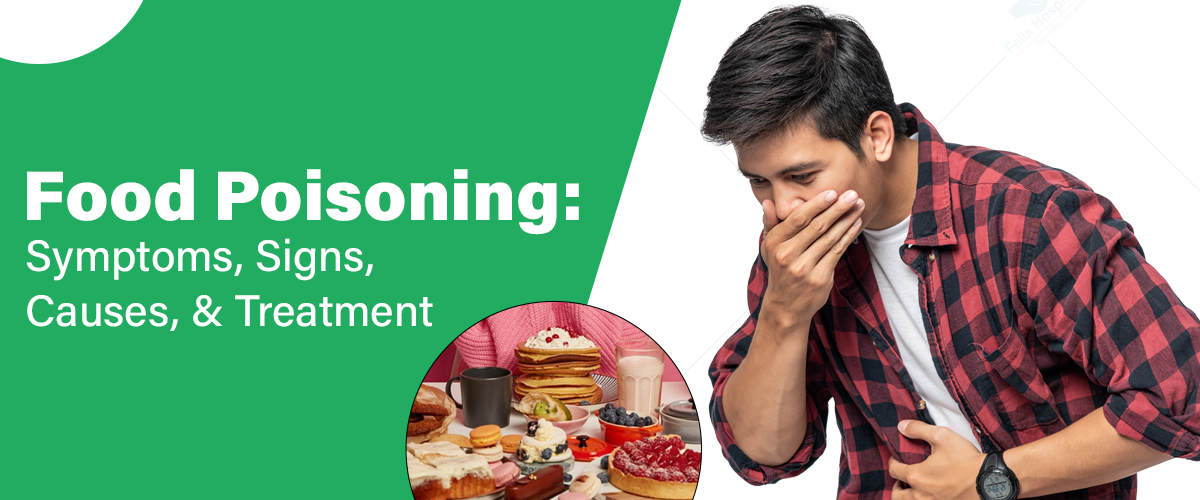Timeline Tales
Exploring the stories that shape our world, one timeline at a time.
Surviving the Dinner Disaster: Tales of Food Poisoning Woes
Uncover the shocking stories and survival tips in Surviving the Dinner Disaster—your guide to avoiding food poisoning nightmares!
Top 5 Common Foods That Lead to Food Poisoning and How to Avoid Them
Food poisoning is a serious concern that can arise from consuming contaminated food. Among the most common culprits are raw or undercooked meats, such as poultry and beef, which can harbor dangerous bacteria like Salmonella and E. coli. To minimize the risk, always ensure that meats are cooked to the appropriate internal temperatures, which you can verify using a food thermometer. Additionally, unwashed fruits and vegetables can also contribute to foodborne illnesses. It's essential to wash them thoroughly before consumption, especially leafy greens and fresh produce. For further information on food safety, consider visiting the USDA's Food Safety and Inspection Service.
Another common source of food poisoning is dairy products that have not been pasteurized. Consuming raw milk or cheese can expose you to pathogens. Opt for pasteurized alternatives instead to safeguard your health. Furthermore, seafood, particularly shellfish, can also carry risks if not handled properly. Ensure that seafood is sourced from reputable suppliers and cooked thoroughly to avoid such risks. Lastly, be cautious with ready-to-eat foods, like deli meats and salads, which can become contaminated during preparation. Keeping food properly refrigerated and consuming it before the expiration date can help minimize these risks. For comprehensive guidelines on safe food handling, the CDC's Food Safety page is a valuable resource.

10 Warning Signs of Food Poisoning You Should Never Ignore
Food poisoning can manifest in various ways, and it's crucial to recognize the warnings signs early to seek proper medical attention. One of the most common symptoms is nausea, often accompanied by vomiting. This discomfort is your body’s way of expelling harmful pathogens. Another critical sign is diarrhea, which can lead to dehydration if not managed properly. If you experience these symptoms, it's essential to stay hydrated and monitor your condition closely.
Moreover, more severe signs include high fever, abdominal pain, and blood in your stool. If you notice a fever above 101°F (38.3°C) or persistent abdominal cramps, seek medical advice immediately, as these could indicate a more serious infection. Always pay attention to your body’s signals! For more detailed information on symptoms and when to seek help, check out the CDC's article on foodborne illnesses.
How to Handle a Food Poisoning Incident: Tips for Recovery and Prevention
Experiencing food poisoning can be distressing, but taking swift action can aid recovery. First, it is essential to stay hydrated. Consuming clear fluids such as water, broth, or oral rehydration solutions can help replenish lost electrolytes. According to the CDC, it’s crucial to avoid caffeine and alcohol since they can further dehydrate the body. If symptoms persist for more than 48 hours, or if you experience severe symptoms such as high fever or blood in stool, seek medical attention immediately. Remember, rest is equally important; your body needs time to heal.
Prevention is key to avoiding future incidents of food poisoning. Start by practicing the following food safety tips:
- Ensure to wash hands thoroughly before handling food.
- Cook foods to the recommended temperatures, as outlined by USDA FSIS.
- Avoid cross-contamination by using separate cutting boards for raw meats and vegetables.
- Store perishable foods promptly in the refrigerator within two hours of preparation.